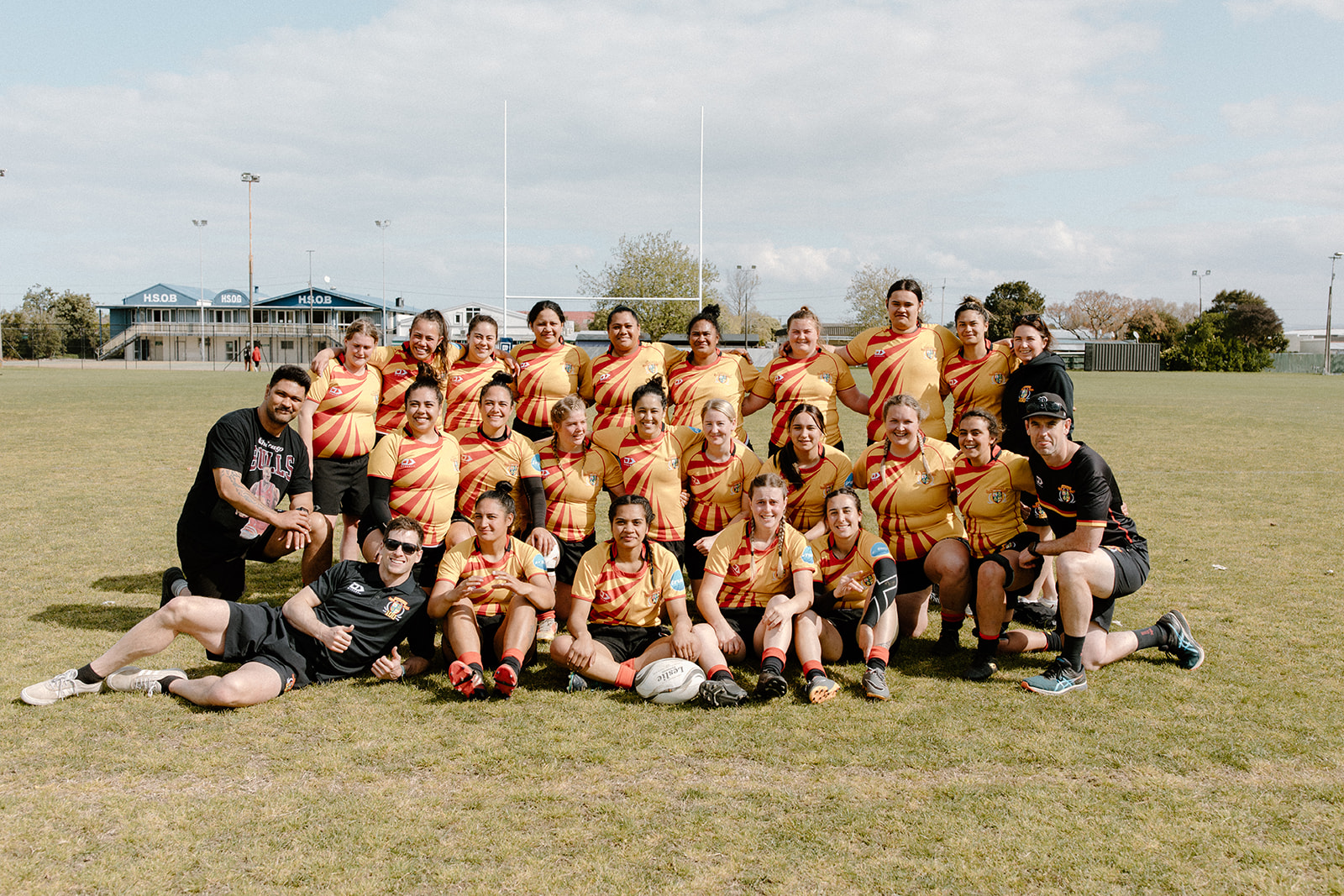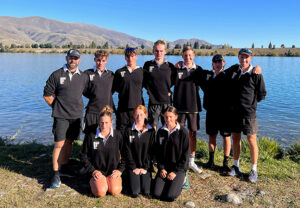In the space of a year, the Thames Valley’s female rugby team, The Vixens, went from 12 players to 45. At the height of the sport in New Zealand, the squad is proving they’ve got what it takes on field and off. KELLEY TANTAU reports
The girls in the red and gold were a little green.
Some had never stepped foot on a rugby field before, let alone played a game.
And yet, in the span of one season, they not only played games, but won them, and instead of dwindling in numbers, they grew.
This turning of the tide is a long time coming for Thames Valley’s The Vixens, and yet the timing couldn’t be more perfect.
With the Black Ferns’ history-making Rugby World Cup win on November 12, conversations about women’s rugby in New Zealand have risen to a crescendo. But even before the Kiwi’s victory over the English, Thames Valley had been working hard to improve the sport at home.
Brendan Clark, a former Swampfox hailing from Ngatea, became The Vixens’ coach in February. With training kicking off in March, he was surprised to find there was no team list to draw upon, forcing him to start from scratch. By the end of the 2022 season, however, he enlisted 45 women to play for the team.
Arleen McLaren, who wears the Number 8 jersey, said the credit lied with their new coach, who put meaning into the matches.
“As cheesy as it was, every single game, he’d tell us: ‘You’re doing it for the person standing next to you; you’re doing it to make history’.
“He’d tell us we were doing it for the Valley, for the next girl coming through and wearing the jersey, and I think if it wasn’t for that mentality going in, we probably wouldn’t have stuck around.”
Arleen, from Te Aroha, is also a board member of the Thames Valley Rugby Union, and said Brendan was a “keen driver” behind promoting the sport in the region, encouraging players to show up “week in and week out”.
“In the Valley, it’s been quite challenging. It’s exactly like what Ruby Tui has been saying she hears: ‘Who exactly are the Black Ferns?’, ‘Why do women play rugby?’
“There’s still that stigma here unfortunately,” she said.
“But the historic [Black Ferns] win is challenging a lot of the social norms, and what females are up to in the sporting realm. I personally think there are people out there that don’t accept it, but, fortunately, things are changing, and we’ll just have to run with it if we can.”
During the club season, The Vixens played in the Waikato Development Competition, which Brendan said included newer teams that were interested in advancing into premier rugby. The Vixens made it to the final where they drew against an experienced Matamata squad.
“In that first competition, I think about 90 per cent of our girls had never played rugby before,” he said, “so they did a good job in making the final.”
The second campaign was a round-robin against five North Island Heartland teams.
It was the first time a Valley team had played against those sides, Brendan said, and The Vixens won three out of five of their matches.
The Thames Valley club, Hauraki North, also played in the local seven’s tournament on November 19, beating Leamington 19-12 to win the contest.
Not only were the competitions vital in allowing players to play rugby without having to travel to another region, they also gave school players a pathway to represent the province, Brendan said. They also proved a point.
“If you’d said at the start of the year we were going to win three out of five of the Heartland games, I don’t think many people would’ve thought that was possible,” he said.
“The girls’ toughness was probably my biggest concern going into it.
“Having never played rugby before, they were coming up against a lot of experienced girls, but they ended up throwing themselves into everything – they were probably too tough for their own good, at times – but it was cool to see the way they got stuck in.”
Brendan and Arleen reckon women’s rugby is “exploding” at the moment, and that there will be “massive opportunities” in the sport over the next few years. They even have an ex-Black Fern committed to playing for the team in 2023.
But the momentum needed to continue.
“I think there are people out there who want to drive it, who want to be activators and champions of the sport… and I’m still trying to figure it out myself, but there are people out there who seem to have a strong influence in not driving the sport forward,” Arleen said.
“But with the Rugby World Cup just happening, all of those emotions… I feel as a union, we just need to jump on the bandwagon and capitalise on what just happened, because if we don’t, that whole momentum will go and we’ll be back at square one, and it’ll be Thames Valley’s young women turning to other sports.”





